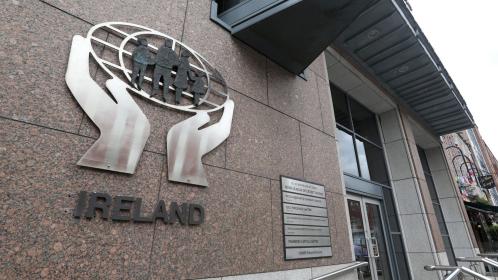
Your rating can climb and slide in surprising ways. But you can still avoid that plunging feeling next time you want a loan
Do you pay off your credit card bill each month? Have you made all your mortgage payments without fail? If you can answer yes to both these questions, you might assume you have a perfect credit score. In reality, it may be disappointingly average.
Most of us know the basics of how to obtain a good credit score: be on the electoral roll, have a credit card and don’t miss mortgage repayments.
However, achieving an “excellent” score — which can affect anything from a loan application to the type of broadband deal you are offered — depends on many other factors.
Money asked Experian, one of the main credit-reference agencies, to clarify how the process works. (The other two agencies are Equifax and Callcredit, which owns Noddle, a relative newcomer. Each has its own slightly different system for working out someone’s score, but they all follow the same principles.)
How to play the game
Experian’s credit score is on a scale that runs from 0-999, with 999 being the best record you could have.
Anything over 961 is classed as “excellent” and would provide you with access to new credit on the best possible terms. Below that, your record is either considered “good” or “fair”— until you descend to a score under 720. This is seen as “poor” or “very poor” and would make you look risky to lenders. As a result, you would be offered more expensive mortgage deals.
A missed payment on a bill would lose you at least 80 points.
But there are ways to earn “brownie points” to boost your rating, according to James Jones of Experian.
Having a credit card, but only using a small proportion of your borrowing limit, would enhance your score. A monthly balance 30% less than your limit would gain you 90 points. Conversely, having a balance that was 90% or more of your credit limit would lose you 50 points — even if you still managed to pay every bill on time.
For example, if your credit limit was £5,000 and the outstanding balance on your credit card was £4,700, you would be using 94% of your maximum limit and this would hit your credit score.
Paul Wiseall of Noddle said: “A rule of thumb is to keep card balances under a quarter of your available credit. Using a higher amount of credit will imply you have more debt than you can handle.”
Ultra-low balances earn additional brownie points. Experian said having a credit card balance under £50 — or zero — would gain you 60 points. A balance of £15,000, however, could shave 50 points off your score.
Nevertheless, having a high credit limit looks good; it indicates that lenders consider you a safe bet. If your limit is more than £5,000, Experian said this could add 20 points to your score. And if it’s £250 or less, you could lose 40 points.
MRS PERFECT
- Mrs Perfect has an ‘excellent’ score of more than 961 – the maximum is 999. She:
- is on the electoral roll
- has no missed payments, county court judgments or insolvencies
- has a credit card, open for five years, with a high credit limit and a low balance, and has never missed a payment
- keeps her current account in the black
- had a personal loan of £5,000 that was repaid in full and on time
- has not applied for credit in the past six months
Start young
First-time homebuyers are sometimes turned down for a mortgage because they do not have a sufficient borrowing footprint. Having a credit card, even if it is not used much, will help. However, do not leave this until the last minute, because recently opened accounts can lower your score.
Jones said: “It is all about building a strong track record, and longstanding accounts can help. New accounts of any type are associated with higher risk. If you only had one account [of any type], you could lose about 75 points if it was opened in the last 18 months.”
If you have had your credit card for five years or more, you would gain about 20 points.
Make sure you are on the electoral roll; this is an easy way of adding 50 points to your score, according to Experian.
MR AVERAGE
- Mr Average has a credit score of 750. He:
- is not on the electoral roll
- has no missed payments, county court judgments or insolvencies
- has never taken out a personal loan
- has no mortgage
- has a credit card, open for three years, with a balance of £1,000 and £2,000 (but no missed payments)
- has made multiple recent applications for another credit card
Applying for credit of any kind can leave a “footprint” on your credit file. For example, if you have applied for six cards in the past six months, it could lower your rating.
Choosing to pay for your car insurance in monthly instalments, as opposed to an annual lump sum, could boost your score by 20 points — provided you don’t miss any of the payments, of course.
How to check your score
More than half of Britons have never checked their credit scores, according to a recent survey by the consumer service MyCreditMonitor.
Experian and Equifax allow you to see your credit report online. You can choose to take out their 30-day free trial or pay £2 for a one-off report. Bear in mind that, if you opt for the free trial, the onus will be on you to remember to cancel it in time. Noddle offers a free check online.



